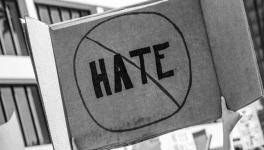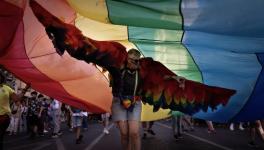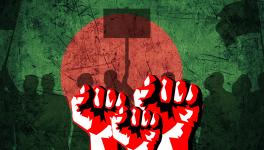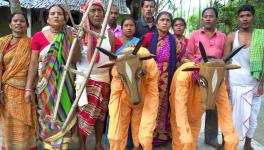From Bhutan to Botswana, LGBTQ Rights Advanced in Unexpected Places in 2021
Though LGBTQ communities face growing risks in many countries, there have been some bright spots
Across the world, gay people have gained many protections with changes in laws and norms surrounding the issue of same-sex marriage, discrimination and equal rights. Global acceptance of the LGBTQ community, an acronym meaning lesbian, gay, bisexual, transgender and queer or questioning, is on the rise, according to the US-based Pew Research Center.
But that doesn't mean that stigma, discrimination and homophobic attacks have ended. Places such as Poland and Hungary have seen a reversal of hard-won progress, with conservative governments stoking anti-LGBTQ sentiment in the name of family values. In many countries, LGBTQ communities have been disproportionately affected by a global backsliding on democracy and human rights and by the fallout from the COVID-19 pandemic.
But despite setbacks and abuses, several parts of the world have rekindled hope by taking steps this year to advance the rights of the LGBTQ community. Here's an overview.
Asia
The tiny Himalayan kingdom of Bhutan became the latest Asian nation to decriminalize homosexuality this year. In February, King Druk Gyalpo signed off on a law passed by lawmakers, amending a line from Bhutan's penal code that criminalized "sodomy or any other sexual conduct that is against the order of nature," previously treated as a reference to gay sex.
Activists have hailed the move in a country where stigma and discrimination are rife and it's common for gay people to be blackmailed. Many say the country now needs to begin the hard work of fighting homophobia.
Nazrul Islam Ritu, Bangladesh's first transgender mayor, hopes her rise will empower the country's 'Hijra' community
Bangladesh elected its first transgender mayor in 2021. Nazrul Islam Ritu, who is "third gender," the official designation for transgender people in the Muslim-majority nation, beat her rival in a landslide election in November to become mayor of the small rural town of Trilochanpur in western Bangladesh, where she was born.
Speaking to local media, she said her victory showed growing acceptance of the "Hijra" community, an umbrella term for those assigned male gender at birth but who do not refer to themselves as either a man or woman. Bangladesh is home to an estimated 1.5 million transgender people, who face discrimination and violence and are often forced to survive by begging or working in the sex trade.
0 seconds of 0 secondsVolume 90%
Watch video04:23
Transgender anchor hopes to drive change
Another Himalayan country, Nepal, introduced a third gender category in its census this year for the first time. Respondents have the option of choosing "others" as their gender, alongside male and female. Rights activists said the LGBTQ community — estimated at 90,000-strong — still faces discrimination, particularly in jobs, health and education and from a lack of data, which has hobbled access to benefits. It's hoped the data gathered through the census can help the community push for their rights.
North America
The United States this year saw a restoration of rights related to sexual orientation and gender identity that were rolled back by the previous Trump administration. US President Joe Biden ended a ban on service by transgender people in the military, reversed a policy which previously allowed health care companies to deny coverage to gay and transgender people and signed an executive order vowing to use American diplomacy and US foreign assistance to promote and protect LGBTQ rights internationally.
The White House also announced the appointment of Jessica Stern as US special envoy for global LGBTQ issues, filling a post left vacant by the Trump administration.
Pete Buttigieg made history by being the first openly gay Cabinet member to be confirmed by the US Senate
In February, former 2020 presidential candidate Pete Buttigieg became the first openly gay Cabinet member confirmed by the US Senate. "As I was in that hearing taking those questions from senators, you could see my husband, Chasten, over my shoulder, and that is something that has never happened before for a Cabinet nominee," Buttigieg said in an interview with ABC's The View. "My hope is that, in turn, makes it easier for the next person to come along, so that this is never even viewed as a barrier by a future generation."
Buttigieg, who is transportation secretary in Biden's Cabinet, caused a flutter in October by going away on parental leave for several weeks after he and his husband adopted twins.
Earlier this month, Canada joined a growing push around the world to ban conversion therapy by passing a bill formally outlawing it. The widely discredited practice is aimed at changing a person's sexual orientation or gender identity. Tactics can range from talk and behavioral therapy to medical treatments.
Critics have said conversion therapy causes harm to its victims and is based on the false premise that sexual orientation and gender identity can, or should be, "cured." The Canadian law makes it a criminal offense to cause someone to undergo conversion therapy, and to promote or advertise the practice. Activists in Canada have hailed it as a historic moment.
Europe
Switzerland became one of the last remaining nations in Western Europe to approve same-sex marriage in September, with nearly two-thirds of voters backing it in a referendum. The law change will allow same-sex couples to marry in civil ceremonies and provide them with the same rights as other married couples. Foreign spouses will become eligible to apply for citizenship through a simplified procedure, and same-sex couples will be permitted to jointly adopt.
"Today reflects the change of mentality over the last 20 years," Olga Baranova, a spokeswoman for the 'Yes Campaign,' told news agency Agence France-Presse. "It is really the reflection of a very broad and very important acceptance of LGBT people in society."
Switzerland was one of the last holdouts in Western Europe when it came to allowing same-sex marriage
In June, France passed a law that expanded access to its free fertility treatments, such as artificial insemination and in vitro fertilization (IVF), to women in same-sex relationships and single women.The procedure was previously reserved for infertile heterosexual couples, forcing lesbian couples and single women to shop abroad for IVF treatment.
While conservative groups have said the bill will lead to a surge in "fatherless" children, advocates say the law finally brings France in line with some of its European neighbors. "The most important thing about this legislation is that it allows all women to choose for themselves if they want to have a child and how they want to have it," Benedicte Blanchet who works for Mam'en Solo, an organization that campaigns for the rights of single mothers in France, told DW at the time. "It's about respecting their individual choice."
0 seconds of 0 secondsVolume 90%
Watch video03:29
France could extend fertility treatment to all women (28.06.2021)
Africa
Botswana's court of appeal in November upheld a 2019 ruling that decriminalized same-sex relationships, in what was hailed as a major victory for gay rights campaigners on the continent. Before the 2019 High Court ruling, engaging in gay sex in Botswana was punishable by up to seven years in prison.
The bench of five judges unanimously ruled that criminaliying same-sex relationships was a violation of the constitutional rights of LGBTQ individuals to dignity, liberty, privacy and equality. Activists are hoping the decision sets an example for other African nations. Homosexuality is illegal in many African countries, with convictions carrying a death sentence in some places.
0 seconds of 0 secondsVolume 90%
Watch video01:35
Botswana activists fight for LGBTQ rights
In February, a new criminal code went into effect in Angola after the parliament passed it in 2019 and the president signed it into law in November 2020. The new penal code scraps a 133-year passage banning same-sex relations, put in place when the southwest African nation was still a Portuguese colony. It also contains full anti-discrimination protections on the basis of sexuality and gender identity.
Even though LGBT people haven't faced prosecution in recent decades, same-sex relationships were still largely considered taboo by Angola's conservative government, largely due to the powerful influence of the Catholic Church.
South America
Earlier this month, Chile passed a historic bill granting equal marriage rights to same-sex couples. The country legalized same-sex civil unions in 2015, and had been eagerly awaiting the legalization of gay marriage since then-president Michelle Bachelet sent a bill to Congress in 2017.
Chile's new law will enable same-sex parents to have parental rights over the biological or adopted children of a spouse and creates standard rules on inheritance and other financial matters. Chile joins just a handful of nations in majority Catholic South America with similar laws. They include Argentina, Uruguay, Brazil, Colombia and Ecuador.
0 seconds of 0 secondsVolume 90%
Watch video02:46
Chile passes law allowing same-sex marriage
Get the latest reports & analysis with people's perspective on Protests, movements & deep analytical videos, discussions of the current affairs in your Telegram app. Subscribe to NewsClick's Telegram channel & get Real-Time updates on stories, as they get published on our website.



























